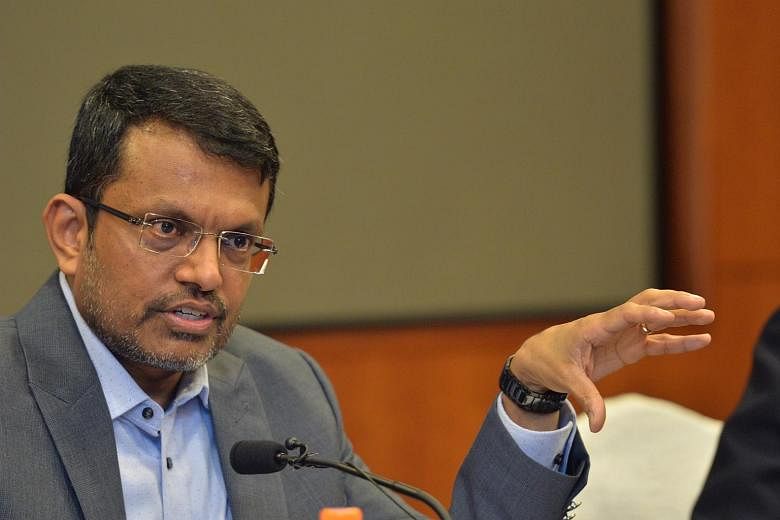SINGAPORE- Singapore's economic growth remains sluggish amid the lacklustre global outlook, Monetary Authority of Singapore (MAS) managing director Ravi Menon cautioned.
Uncertainty around Brexit will weigh on the European Union's economy, while there has been a lack of trade and investment demand from the United States, he noted during the MAS annual report briefing on Monday (July 25).
Against this backdrop, Singapore's economic performance in the second half of 2016 will be similar to the first half - when growth averaged at 2.2 per cent year on year - with some "month-to-month volatility".
"The trade cluster is showing tentative signs of stabilisation with improvement in certain segments," Mr Menon noted, pointing to the electronics sector's sequential growth in April and May.
But modern services, such as financial and engineering services, will experience slower growth than they previously did.
"The forecast for growth in 2016 is 1 to 3 per cent. The Ministry of Trade and Industry and MAS are reviewing this range," Mr Menon added.
Meanwhile, the MAS intends to maintain its current Singdollar exchange rate policy stance, barring a significant shift in the inflation outlook.
In April, the MAS moved to a zero per cent rate of appreciation for the Singdollar nominal effective exchange rate policy band.
Singapore's core inflation rate will likely average around 1 per cent, and trend towards the historical average of close to 2 per cent over 2017, Mr Menon said.
It's also "too early" to unwind the property cooling measures, he added.
"Household balance sheets have started to strengthen, with annual growth in household debt moderating to 1.7 per cent in the first quarter of 2016, down from 8 per cent over the last five years.
"But there is still some way to go, to entrench the gains in stabilising the property market and restoring household debt sustainability."


